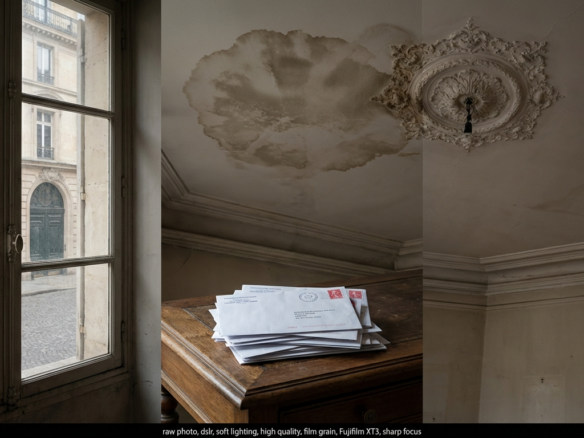Despite comprehensive sanctions imposed by the European Union following Russia’s invasion of Ukraine, wealthy Russians continue to acquire prime real estate across EU member states through sophisticated workarounds and legal loopholes. This ongoing trend has raised significant security concerns among European officials and highlighted the challenges of enforcing international sanctions in the complex world of cross-border property investments.
Get 50% OFF!
Subscribe to our newsletter and enjoy a 50% discount on all listing packages, no strings attached!

Recent investigations have revealed a systematic pattern of sanction evasion, with Russian nationals utilizing shell companies, citizenship-by-investment programs, and family networks to maintain access to European property markets. The persistence of these transactions underscores the limitations of current regulatory frameworks and the urgent need for enhanced oversight mechanisms.
Russians Find Ways Around EU Property Bans
The European Union’s sanctions package, designed to freeze Russian assets and limit economic activities, has proven insufficient to completely halt property acquisitions by Russian nationals. Wealthy individuals from Russia have demonstrated remarkable adaptability, employing various strategies to circumvent restrictions while maintaining plausible deniability. These methods range from using non-Russian family members as purchasers to establishing complex corporate structures in jurisdictions with weaker oversight.
Property records across multiple EU countries show a concerning pattern of transactions that, while technically legal, appear designed to evade the spirit of sanctions. The most common approach involves timing purchases just before sanctions take effect or restructuring ownership through intermediaries. Intelligence agencies have documented cases where properties worth millions of euros changed hands through carefully orchestrated transactions that obscure the true beneficial ownership.
Shell Companies Hide True Ownership Identity
The use of shell companies has become the primary vehicle for disguising Russian ownership of European real estate. These corporate entities, often established in multiple jurisdictions simultaneously, create layers of legal separation between sanctioned individuals and their property investments. The complexity of these structures makes it extremely difficult for authorities to trace ultimate beneficial ownership, even when suspicions arise about the true identity of purchasers.
Investigations have uncovered networks of interconnected companies spanning several countries, with ownership chains that deliberately obscure the connection to Russian nationals. Professional service providers, including lawyers and accountants, play crucial roles in establishing these structures, often operating within legal boundaries while facilitating sanction evasion. The sophistication of these arrangements suggests coordination by experienced professionals familiar with international compliance requirements and regulatory blind spots.
Cyprus and Malta Remain Popular Entry Points
Cyprus and Malta have emerged as preferred gateways for Russian property investments in the EU, largely due to their citizenship-by-investment programs and historically strong ties to Russian business interests. These Mediterranean nations offer attractive pathways to EU citizenship or residency, which can then be leveraged to purchase property in other member states without triggering sanctions-related scrutiny. The established networks of Russian-speaking professionals and service providers in these countries facilitate smooth transactions.
Both countries have implemented reforms to their investment programs following EU pressure, but existing relationships and grandfathered arrangements continue to provide opportunities for property acquisition. The concentration of Russian-linked transactions in these jurisdictions has prompted increased monitoring by European authorities, yet the volume of suspicious activities suggests that enforcement remains inadequate. Local real estate markets in premium locations continue to see significant interest from buyers with apparent Russian connections.
Legal Loopholes Allow Continued Purchases
Current EU sanctions legislation contains several gaps that permit continued property transactions by Russian nationals under specific circumstances. These loopholes include exceptions for purchases made through EU citizens, transactions involving properties owned prior to sanctions implementation, and acquisitions by individuals who can demonstrate legitimate business purposes unrelated to sanctioned activities. The complexity of determining what constitutes a violation creates opportunities for creative legal interpretations.
The enforcement mechanisms for property-related sanctions vary significantly between EU member states, creating inconsistencies that can be exploited by sophisticated buyers. Some countries lack comprehensive databases for tracking beneficial ownership, while others have limited resources for investigating suspicious transactions. This patchwork of regulatory approaches enables forum shopping, where buyers can target jurisdictions with weaker oversight or more favorable legal interpretations of sanctions requirements.
Security Concerns Rise Over Sanction Evasion
European security agencies have expressed growing alarm about the national security implications of continued Russian property acquisitions in strategic locations. Properties near critical infrastructure, government facilities, or military installations raise particular concerns about potential intelligence gathering or other security threats. The difficulty in identifying true ownership makes it nearly impossible to assess the security risks associated with specific properties or their occupants.
The persistence of sanction evasion in the real estate sector undermines the effectiveness of the EU’s broader sanctions regime and sends concerning signals about European resolve. Intelligence officials worry that successful circumvention of property sanctions may encourage similar evasion tactics in other sectors, potentially compromising the overall impact of economic pressure on Russia. The situation has prompted calls for enhanced cooperation between member states and stronger enforcement mechanisms to close existing loopholes.
The continued flow of Russian capital into EU real estate markets despite comprehensive sanctions reveals significant weaknesses in current enforcement mechanisms and regulatory frameworks. As European authorities struggle to balance legitimate property rights with security concerns, the sophistication of evasion tactics continues to evolve, creating an ongoing cat-and-mouse game between regulators and determined buyers.
Moving forward, the EU faces the challenge of strengthening sanctions enforcement without undermining legitimate property markets or creating excessive bureaucratic burdens. The success of future measures will depend on enhanced cooperation between member states, improved beneficial ownership transparency, and the political will to close loopholes that currently enable sanction circumvention. Until these issues are addressed comprehensively, European real estate markets will likely continue to serve as vehicles for sanctions evasion, potentially compromising both economic pressure on Russia and European security interests.





Join The Discussion